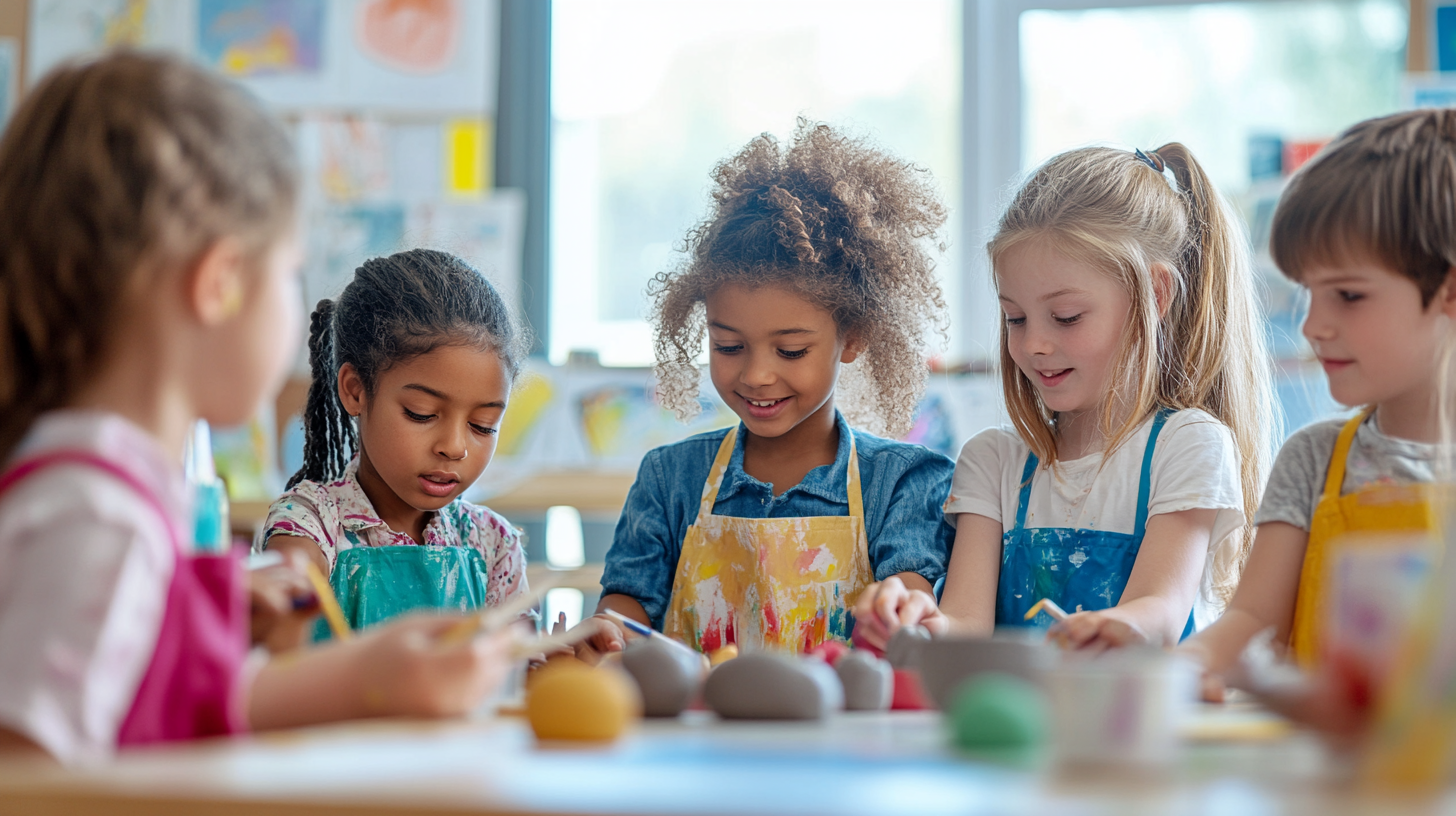In a traditional classroom, students follow a standard curriculum designed to build foundational skills across a variety of subjects. However, many students, especially academically advanced students, often thrive when given additional learning opportunities beyond the basic curriculum subjects. This is where enrichment programs come into play.
The goal of enrichment is to provide extra learning opportunities that enhance the learning experience, helping students explore advanced concepts, problem-solving skills, and creative thinking beyond their grade level. Through academic enrichment activities, arts after school, or physical activity-based programs, students can gain exposure to new educational experiences that support their learning potential.
📢 Are you an educator running enrichment programs, after-school clubs, or extracurricular activities? Managing registrations, class schedules, and payments can be overwhelming. Pembee simplifies this process by offering an easy-to-use online booking system tailored for enrichment program providers. Learn more about how Pembee can help you streamline enrichment program management here.
What is Enrichment in School?
Enrichment in school refers to extra learning opportunities that supplement the basic curriculum. These programs are set up to help students go beyond the core content in classrooms to develop life skills, computational thinking, and abstract learning in an engaging way.
Enrichment activities take many forms, including:
- Academic Enrichment Programmes: Math enrichment, challenge packets, and science experiments tailored for advanced levels.
- Creative Arts Enrichment: Music lessons, drama performances, and visits to art galleries.
- Physical Enrichment: Sports days, dance workshops, and physical fitness programs.
- STEM-Based Enrichment: 3D printing projects, basic coding games, and robotics.
These activities cater to a wide range of learning styles and abilities of pupils, making learning more engaging and interactive.

The Role of Teachers in Enrichment
A classroom teacher plays a crucial role in implementing enrichment opportunities by:
- Identifying types of learners who need additional challenges or advanced content.
- Designing extension activities for students who exceed the academic performance expectations of their regular classroom.
- Encouraging students to participate in enrichment sessions and challenging activities that go beyond the basic curriculum.
- Supporting students in developing academic lessons and hands-on activities such as board games, science experiments, and challenge for kids initiatives.
- Creating a balanced curriculum that includes academic enrichment examples and non-academic enrichment.
By providing activities for pupils that extend beyond the basic curriculum, teachers help students gain advantageous skills that prepare them for higher education and future careers.
Benefits of Enrichment for Students
Enrichment opportunities provide students with a broad range of benefits that extend beyond academics:
- Enhancing Critical Thinking Skills
- Activities like math enrichment and academic enrichment projects challenge students to think logically and develop math abilities.
- Exposure to advanced math concepts through challenging math packets helps students improve logical thinking.
- Fostering a Love for Learning
- Enrichment students develop a positive attitude toward learning when they engage in activities within lessons that are fun and interactive.
- Programs like educational video games and basic coding games make learning more exciting.
- Promoting Social Skills and Teamwork
- Participation in extracurricular activities and school trips allows students to develop social interactions.
- Group-based challenge activities or volunteering work encourage collaboration and active citizens who contribute to their communities.
- Encouraging Creativity and Innovation
- Activities such as arts after school, music lessons, and summer school programs provide children with opportunities to explore their creative potential.
- Hands-on activities like 3D printing and coding help students develop advanced learning techniques.

Implementing Effective Enrichment Strategies
Schools can implement enrichment programs effectively by:
- Identifying High-Potential Learners
- Schools can use academic enrichment programs to assess students' math skills, motor skills, and academic performance.
- Special schools and mainstream schools can implement advanced classes such as advanced math classes for students excelling in core subjects.
- Tailoring Activities to Diverse Needs
- Providing personalized learning experiences ensures that primary school and middle school children all receive the right level of challenge.
- Schools can offer a variety of activities to cater to different ability levels, ensuring that all students benefit.
- Creating an Inclusive Learning Environment
- School districts should support enrichment projects that include students opportunities from diverse backgrounds.
- Schools should incorporate non-instructional enrichments to develop well-rounded learners.
Easily Manage Enrichment Programs with Pembee
For educators looking to implement enrichment opportunities, Pembee offers an easy-to-use online booking system for enrichment programs to manage extracurricular activities or academic enrichment sessions.
With Pembee, educators can:
- Organize varied activities across different grade levels.
- Track student enrollment and engagement in enrichment sessions with a real-time class roaster and attendance tracking
- Offer challenge activities, math enrichment, and physical activity programs without administrative hassle.
If you're looking for an easy way to manage enrichment programs, Pembee provides a seamless solution for schools and enrichment providers.